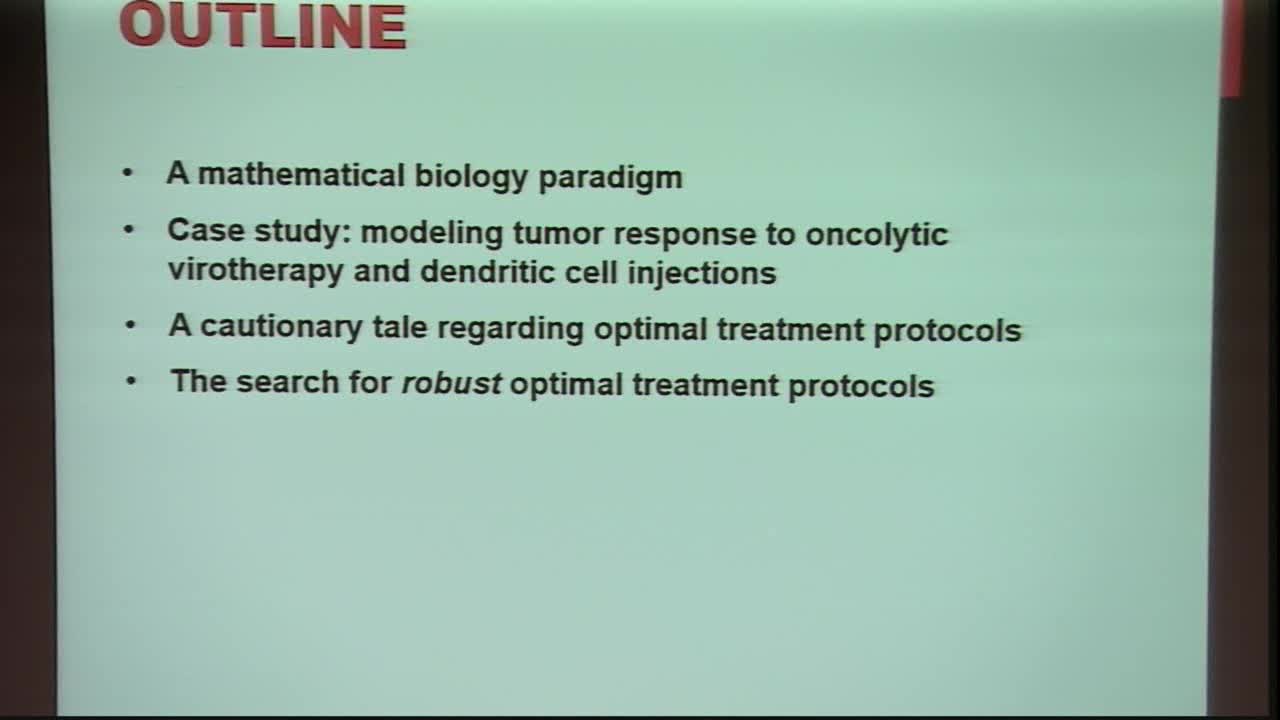Identifying robust cancer treatment protocols from small experimental datasets
Presenter
May 29, 2018
Keywords:
- robust therapies, cancer treatment,mathematical modeling, virotherapy, immunotherapy
Abstract
The heterogeneous nature of cancer observed across different regions of the primary tumor, across metastatic sites, across time, and across patients makes designing efficacious yet tolerable therapies a challenge. Both standard of care and personalized treatment protocols run the risk of not exhibiting a robust anti-tumor response in the face of these uncertainties. Here we introduce a platform for exploring this robustness question. Our method begins with time course experimental data for an (often small) sample population, and a mathematical model fit to aggregate data from that sample population. Nonparametric statistical techniques are employed to amplify the sample population and create a large number of virtual populations. Using these virtual populations, optimal therapies can be found for not only the "average mouse" in the small experimental dataset, but for all the virtual populations. This methodology was applied to a murine model of melanoma treated with immuno-enhanced oncolytic viruses and an immunotherapy (dendritic cell vaccines). We identified a treatment protocol combining these two drugs that is robust; that is, not only is the protocol effective for the "average" mouse in the experimental dataset, but it is also effective in mice (virtual populations) where the dynamics differ from the average.
